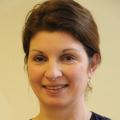
AMATEUR Radio has a long heritage going back to Marconi, the first radio ham who went professional in 1922 and helped create the early BBC broadcasts from London.
In 1913 the first Radio Amateurs founded the Radio Society of Great Britain (RSGB) of which there are 80,000 members.
Pickering radio ham Phil Catterall, who lives in Westlands, is one of these.
Phil has completed more than 100,000 contacts since 1981 and spends several hours a day during lockdown listening and talking to radio amateurs throughout the world.
Phil said: “Many hams are in self-isolation. Those who live on their own who are self-isolating and lonely find the hobby keeps them in touch, with a daily schedule of contacts using Voice, Morse or Digital communication via computer, using short wave radio rather than the internet, mobile phone or landline.
“We all have call signs issued by OFCOM so that we can be identified. In Pickering Phil G4OBK, Dave G3TQQ, Pete M0HQO and Paul G1SQY, are the four most active hams.
“However, if you study OFCOM’s records there are actually another 13 licensees who live in the Pickering area and there are many more licensed hams in other parts of Ryedale.”
Due to the Covid-19 outbreak, many of those who gave up the hobby are coming back. The RSGB has found that since the lockdown former members who dropped out are re-joining.
“OFCOM now allow ham radio operators in the UK to use the letters NHS after their call signs to broadcast support for NHS staff, and there are also stations active using the Stayhome or SAH suffix as part of their call signs, which adds to the growing interest in making contacts.”
Along with operating from home, portable operation using battery power is popular from hills and mountains. This has been suspended in the UK due to the restrictions. The radio amateurs hope they will soon be able to resume these portable operations locally and in Europe.
In recent weeks we have seen Switzerland, Austria, Germany and Czech Republic start to lift their lockdown restrictions, allowing individual operators to drive within their borders to the more remote hills and go hiking and walking from the car with their equipment as part of daily exercise.
The RSGB annual Field Day Contest is a great social event where clubs set up temporary stations in the countryside on the first weekend in June. This has been cancelled due to the restrictions.
Phil said: “There are many other aspects to the hobby such as ‘rag chewing’ which is just chatting to friends on subjects of interest.
“Whilst we do natter about technical matters connected to the hobby such as antennas, equipment and radio propagation, there are also groups set up such as the Caravan Net, Gardeners Net or the Worked all Britain Net who meet on the same frequencies at the same time every day for a ‘rag chew’.
“Veterans with a Royal Signals, RAF and Navy background also have their own nets.”
OFCOM has made it much easier to obtain a free of charge transmitting licence online, with three levels of technical competence needed - foundation, intermediate or advanced, matched to an exam.
Phil sat his advanced exam and Morse Test in 1981 and has been on the air ever since. The exams are coordinated by the Radio Society of Great Britain (rsgb.org) but are administered by local clubs. The local club for Ryedale is Scarborough Amateur Radio Society (g4bp.org) who meet under normal circumstances at the Yorkshire Cricket Clubhouse in Scarborough. New members are welcomed and a training course and exams for all levels are available.



Comments: Our rules
We want our comments to be a lively and valuable part of our community - a place where readers can debate and engage with the most important local issues. The ability to comment on our stories is a privilege, not a right, however, and that privilege may be withdrawn if it is abused or misused.
Please report any comments that break our rules.
Read the rules here